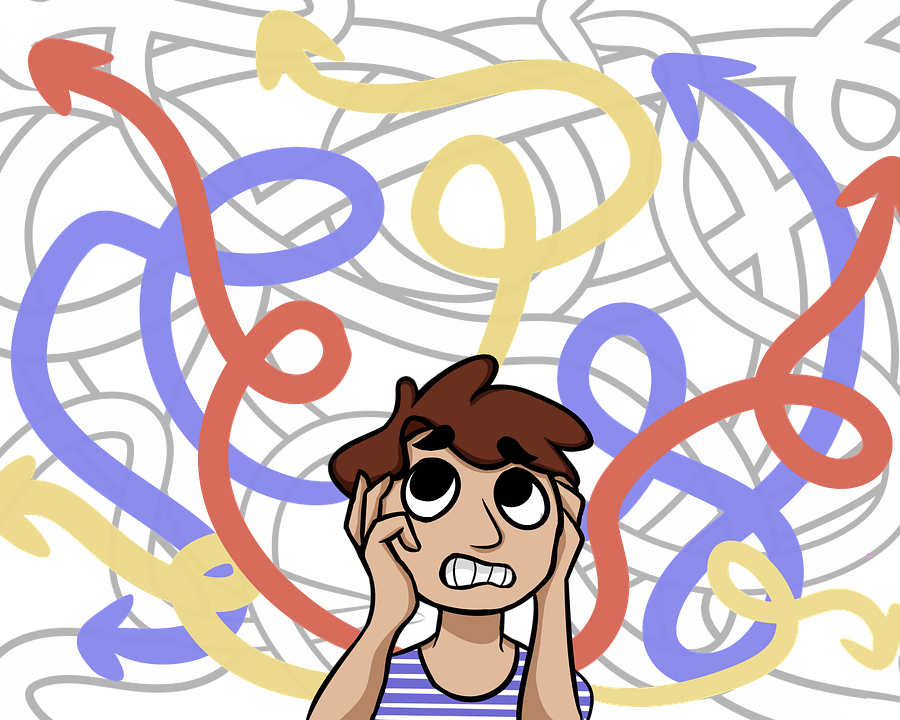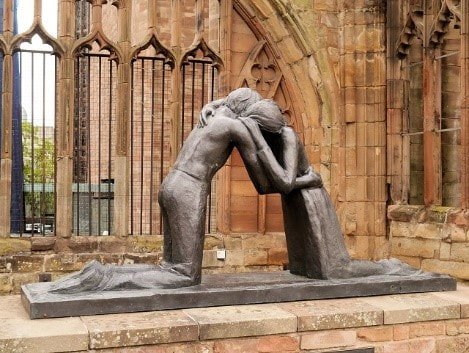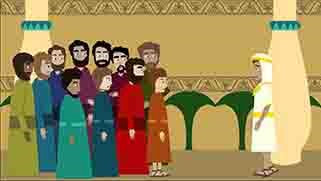|
Guilt is the gift that keeps on giving
It is not unusual for most of us to feel guilty at various times over the course of our life. Those feelings of guilt can surface because of something we did or we think we did; for failing to do something we should have done; or for thoughts we have and believe to be morally wrong. But, while guilt may make us feel uncomfortable, it can also motivate us to apologize or fix a mistake we made. In last week’s Torah portion Vayeshev, Joseph ends up in prison. While there he correctly interprets the dreams of both the king’s cupbearer and baker. Based on his interpretations, the baker is executed but the cupbearer is released from prison and restored to his previous position. At the beginning of this week’s portion Miketz, Pharaoh has a series of dreams which his wise men and magicians are unable to interpret. The cupbearer recommends Joseph for the job. When Joseph successfully interprets Pharaoh’s dreams, he is appointed Viceroy of Egypt. In interpreting Pharaoh’s dreams, Joseph correctly predicts seven years of abundance followed by seven years of famine. During the years of abundance Joseph makes sure enough grain is stored to get through the lean years. When the famine sets in, people from all over the world come to see Joseph כִּֽי־חָזַ֥ק הָֽרָעָ֖ב בְּכָל־הָאָֽרֶץ, because the famine had become severe throughout the world (Gen. 41:57). One day all of Joseph’s brothers except Benjamin, show up looking for food. When they come before him to make their case, the brothers do not recognize Joseph. But, Joseph recognizes them and quickly puts his brothers to the test. He accuses them of being spies and orders them to leave one brother in Egypt, return home to their father and bring back their youngest brother Benjamin. Bemoaning their predicament, the brothers deem this to be payback for the harm they did to Joseph and their father so long ago. All these years Joseph’s brothers have been living not only with the guilt of what they did to their brother but also with the guilt of lying to their father about Joseph’s fate. Now, as they speak these feelings of guilt out loud, it appears the brothers regret their actions. This sense of remorse and despair they are feeling lingers into next week’s portion, as Joseph continues to test his brothers forcing them to sweat it out. After all, guilt is the gift that keeps on giving. Shabbat Shalom. Ellie  The greatest of all faults is to tell yourself that you have none. It’s hard for most of us to admit our faults; to admit when we have done something wrong; or to admit when we have wronged someone else. Even though we know we are not perfect it still can be difficult to own up to our mistakes. We might believe we are kind and fair but then find that we occasionally do things that are not kind and fair. Psychologists call this phenomenon cognitive dissonance. We know we did something wrong but our belief that we are kind and fair causes us to feel conflicted. This week’s Torah portion, Vayeishev is dominated by the story of Joseph and his relationship with his father Jacob and his many brothers. In short, as Jacob’s favorite child Joseph is a bit of a spoiled brat who often lords his favored status over his brothers. Not surprisingly, the brothers don’t take kindly to Joseph’s bratty behavior and in a moment of anger they sell him into slavery and hide the facts from their father. It’s here that the Joseph story takes a slight detour and focuses on one of Joseph’s brothers, Judah. Going off on his own Judah meets Shua and they get married. Shua gives birth to three sons and when the eldest son Er is grown, Judah marries him off to a woman named Tamar. When Er dies suddenly, in accordance with the laws of a levirate marriage, Judah’s next eldest son Onan becomes Tamar’s husband. When Onan also dies Judah informs Tamar she will need to wait until his youngest son Shelah is older before she can marry him. When some time goes by and the marriage has not yet happened, Tamar becomes impatient and sets out to deceive her father-in-law. Dressing up in a disguise, she tricks Judah into having sex. As a pledge for payment to Tamar, Judah leaves behind his seal and cord. Upon discovering a few months later that his daughter-in-law is pregnant, Judah threatens to have her killed. As Tamar is being brought out, she sends a message: לְאִישׁ֙ אֲשֶׁר־אֵ֣לֶּה לּ֔וֹ אָֽנֹכִ֖י הָרָ֑ה וַתֹּ֨אמֶר֙ הַכֶּר־נָ֔א לְמִ֞י הַֽחֹתֶ֧מֶת וְהַפְּתִילִ֛ים וְהַמַּטֶּ֖ה הָאֵֽלֶּה: I I am with child by the man to whom these belong…. Examine these; whose seal and cord and staff are these? (Gen. 38:25) Judah recognizes the items as his and concedes: צָֽדְקָ֣ה מִמֶּ֔נִּי כִּֽי־עַל־כֵּ֥ן לֹֽא־נְתַתִּ֖יהָ לְשֵׁלָ֣ה She is more in the right than I; because I did not give her to Shelah my son. (Gen. 38:26) Despite the cognitive dissonance, Judah makes no effort to deny his own responsibility for what has happened to Tamar. He doesn’t hesitate to admit his error in judgment. What exactly Judah will do when many years later he and his siblings come face to face with Joseph, the brother they sold into slavery, is as yet unclear. But at least in the case of Tamar, Judah has come to understand that the greatest of all faults is to tell yourself you have none. Shabbat Shalom, Ellie  The Flip Side to Forgiveness is Resentments The Christian theologian Lewis B. Smedes once said: To forgive is to set a prisoner free and discover that the prisoner was you. Forgiveness is often defined as a conscious, deliberate decision to release feelings of resentment or vengeance toward a person or group who has harmed you. But, forgiveness doesn’t mean you need to become friends with the person who harmed you or believe that what happened was ok. Instead, forgiveness means letting go of negative feelings and finding peace of mind. Forgiveness is an important part of the 12-Step approach. Step 8 asks us to make a list of all persons we harmed and become willing to make amends to them all. Step 9 then directs us to make amends to such people wherever possible, except when to do so would injure them or others. At the end of last week’s Torah portion Vayeitzei, Jacob hears the sons of his father-in-law Laban speaking harshly about Jacob. After living with Laban for many years, Jacob now realizes how things have come to a head and God tells him it is time to return home, to the land where he was born. As this week’s portion Vayishlach begins, Jacob and his family have left Laban and Jacob is fearful about his coming encounter with his brother Esau. After having been estranged from his brother for many years, Jacob is afraid Esau will seek revenge on him for stealing both his birthright and his father’s blessing. Jacob sends messengers ahead to let Esau know he is bringing gifts, hoping this will soften his brother’s heart. As he spots Esau coming towards him, Jacob bows low to the ground seven times at which point: וַיָּ֨רָץ עֵשָׂ֤ו לִקְרָאתוֹ֙ וַֽיְחַבְּקֵ֔הוּ וַיִּפֹּ֥ל עַל־צַוָּארָ֖ו וַיִּשָּׁקֵ֑הוּ וַיִּבְכּֽוּ: Esau ran to greet him. He embraced him and falling on his neck he kissed him. (Gen. 33:4) The Life Recovery Bible remarks how returning to someone we have hurt is a scary thing, noting how the passing years, the lack of communication, and memories of anger and hateful emotional exchanges can all create tremendous anxiety. It’s easy to view Jacob as devious and perceive the gifts as a bribe, but it’s also easy to view the gifts as a gesture towards seeking forgiveness from his brother. No matter which way you look at it, it seems that at least Esau understands it is time to forgive because he knows the flip side to forgiveness is resentments. Shabbat Shalom. Ellie |
Archives
May 2024
|
OFFICE Hours
|
Telephone802-773-3455
|
Email ADDRESS |


 RSS Feed
RSS Feed